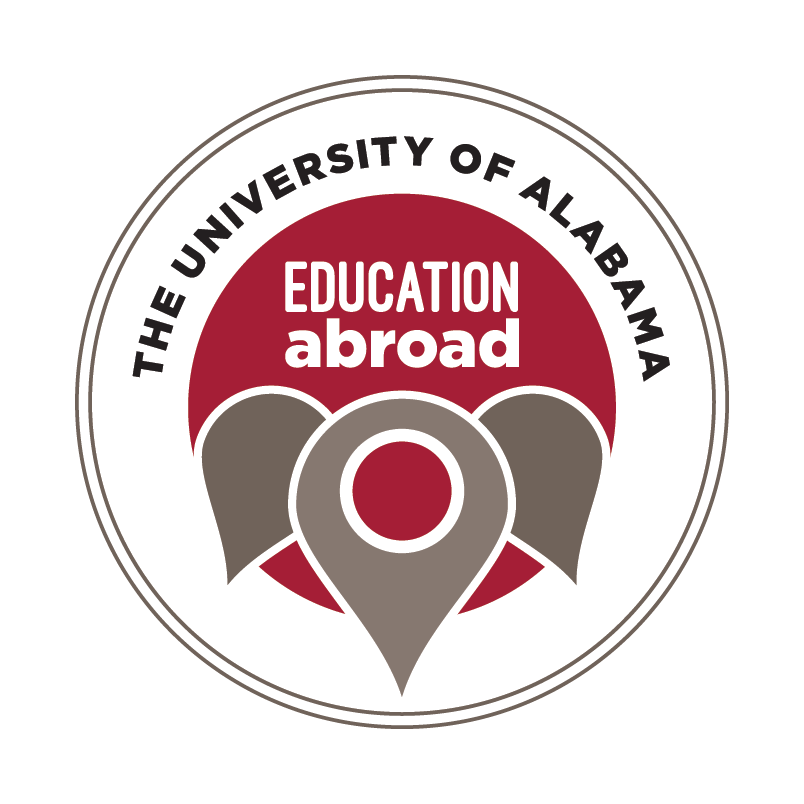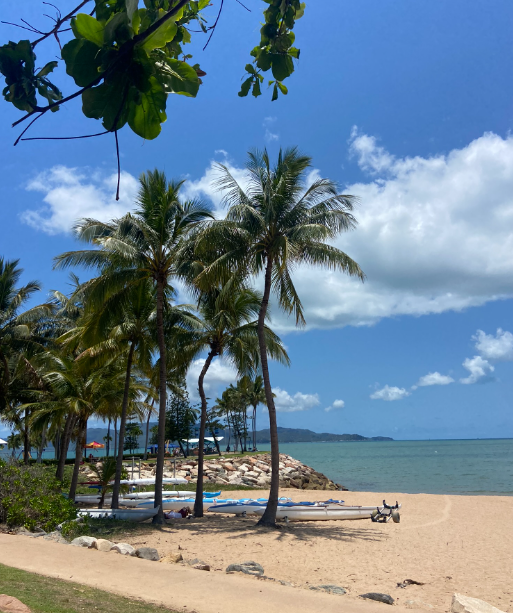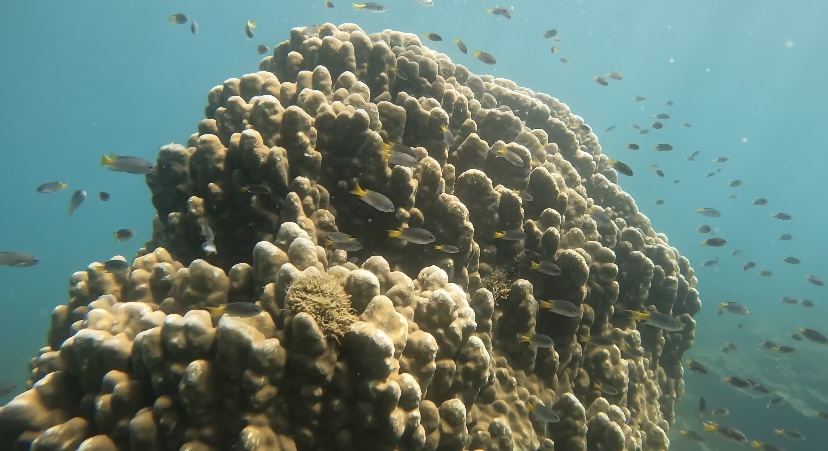Cairns: Aquaculture & Glow Worms
I decided to take Aquaculture of Tropical Species as a Marine Biology elective course last semester, and I am so glad I did. I had no prior experience and didn't even know what Aquaculture was. I barely even knew the scientific names of fishes at this point! My professor was fantastic and so caring the whole semester. To top off an amazing semester together, we all went on a 3 day field trip to Cairns.
The road trip up to Cairns took 4 hours, but it wasn’t too bad- we stopped at various Aquaculture facilities along the way. I got a behind the scenes tour of breeding facilities of Coral Trout, Giant Grouper, and Redclaw. The farmers were very friendly and so excited to show us their fish.
After our fishy fun was over, my class drove to the Atherton Tablelands for some hiking and a night under the stars. The tablelands were absolutely gorgeous: miles and miles of bright green, rolling hills. I swear I saw at least 1000 goats and 1000 cows along the way. We stayed at Mungalli Falls, a famous site for seeing glow worms! We hiked out to the falls at night, and stood under a big cavern in the forest. “1 2 3- everyone turn out your flashlights!”
The entire forest illuminated and sparkled with these bright blue Glow worms. It was one of the most magical experiences of my time here in Australia.
Mungalli Falls was awesome: saw a cassowary in the wild, along with kangaroos, kookaburras, and a platypus!! We hiked, swam in waterfalls, and even ziplined across a lake on site. What a studious field trip!
Orpheus Island: Evolution & Ecology of Reef Fishes
This semester, I got the opportunity to go to Orpheus Island for 2 classes: Reef Fishes & Coral Geomorphology. Just picture white sand, crystal clear waters, and blue skies with not a cloud in the sky. Not to mention the coral coverage here! It is absolutely breathtaking, the corals go on for miles and miles and miles. Some of the research techniques I learned on Orpheus include studying fish abundance using underwater transects, and proper reef fish identification skills which allow me to count and ID any fish that swims past. Labridae, Pomacentridae, Acanthuridae… any fish family possible is now permanently ingrained into my brain after the Orpheus trip. (This sounds horrible but I promise it is a very necessary field skill to have!)
Other fun research projects involved catching and studying Gobies, mangrove fish counts, and using underwater videography to capture sneaky fish behavior. It’s so cool that our professors are right there in the water with us for hours, and are so patient and willing to help us understand the concepts.
Besides the “school” parts of our trip, I embarked on various fun snorkels- which of course, had amazing visibility as well. I could see two stories down! I watched sea turtles swim next to me, and said hello to the local octopus, cuttlefish, and garden of giant clams. On my Mangrove Snorkel one morning, I was lucky enough to see baby Blacktip sharks and rays!
Orpheus Island is lucky to have an amazing kitchen and cook staff, and they easily catered for my personal GF/ Vegetarian dietary requirements. Having meals with my Professors and classmates helped us bond and understand each other on an entirely different level.
Coral Reef Geomorphology
During my second trip to Orpheus Island, I studied the topography of several reef flats using transects and dumpy level surveys. My class and I collected data from a high energy, and low energy reef and compared them in a field report. The days were long and tiring- but rewarding. Tom, one of my favorite staff members at OIRS, always provided us with fresh watermelon after a long day in the hot sun. While doing our research, we saw eels, crabs, and tons of coral. Once again, OIRS gave us beautiful weather and stunning visibility.
A trip to Orpheus would not be complete without some fun snorkels! My memory and knowledge of learning fish ID really paid off- I still remember 90% of the fish families I saw on the reef. The coolest thing I saw while snorkeling was a group of Bigfin Reef Squid. Their coloration and patterns are so iridescent and beautiful. They camouflage so well in the water, so you're lucky if you can spot them!
JCU has one of the best Marine Biology programs in the world- and I would argue they have some of the best field trips too. JCU has given me nothing but support here in Australia, and I am so grateful for the amazing opportunities I've had this year`! I feel so much more prepared for the “real world” of Marine Biology after my field trip experiences.
-Syd



